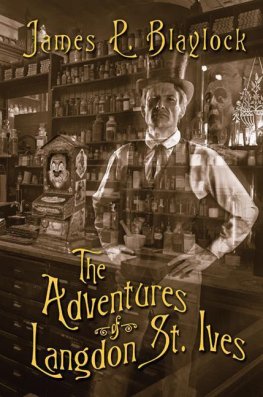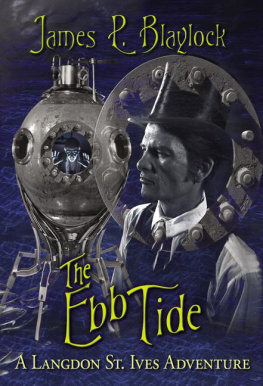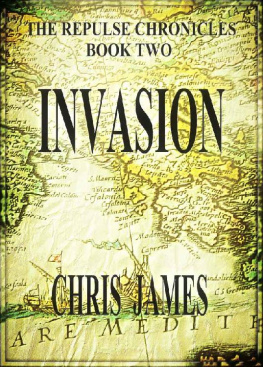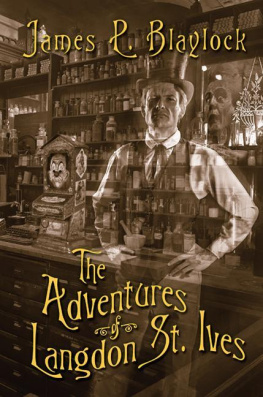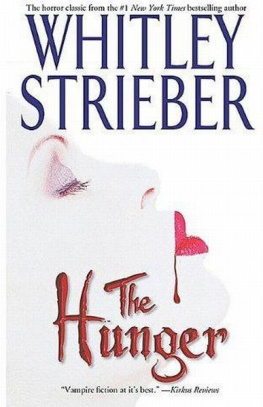James Blaylock - Homunculus
Here you can read online James Blaylock - Homunculus full text of the book (entire story) in english for free. Download pdf and epub, get meaning, cover and reviews about this ebook. genre: Science fiction. Description of the work, (preface) as well as reviews are available. Best literature library LitArk.com created for fans of good reading and offers a wide selection of genres:
Romance novel
Science fiction
Adventure
Detective
Science
History
Home and family
Prose
Art
Politics
Computer
Non-fiction
Religion
Business
Children
Humor
Choose a favorite category and find really read worthwhile books. Enjoy immersion in the world of imagination, feel the emotions of the characters or learn something new for yourself, make an fascinating discovery.

- Book:Homunculus
- Author:
- Genre:
- Rating:5 / 5
- Favourites:Add to favourites
- Your mark:
- 100
- 1
- 2
- 3
- 4
- 5
Homunculus: summary, description and annotation
We offer to read an annotation, description, summary or preface (depends on what the author of the book "Homunculus" wrote himself). If you haven't found the necessary information about the book — write in the comments, we will try to find it.
Homunculus — read online for free the complete book (whole text) full work
Below is the text of the book, divided by pages. System saving the place of the last page read, allows you to conveniently read the book "Homunculus" online for free, without having to search again every time where you left off. Put a bookmark, and you can go to the page where you finished reading at any time.
Font size:
Interval:
Bookmark:
James P. Blaylock
Homunculus
PROLOGUE
LONDON 1870
Above the St. Georges Channel clouds thick as shorn wool arched like a bent bow from Cardigan Bay round Strumble Head and Milford Haven, and hid the stars from Swansea and Cardiff. Beyond Bristol they grew scanty and scattered and were blown along a heavenly avenue that dropped down the sky toward the shadows of the Cotswold Hills and the rise of the River Thames, then away east toward Oxford and Maidenhead and London. Stars winked and vanished and the new moon slanted thin and silver below them, the billowed crescent sail of a dark ship, swept to windward of stellar islands on deep, sidereal tides.
And in the wake of the moon floated an oval shadow, tossed by the whims of wind, and canting southeast from Iceland across the North Atlantic, falling gradually toward Greater London.
Two hours yet before dawn, the wind blew in fits above Chelsea and the sky was clear as bottled water, the clouds well to the west and east over the invisible horizon. Leaves and dust and bits of paper whirled through the darkness, across Battersea Park and the pleasure boats serried along the Chelsea shore, round the tower of St. Lukes and into darkness. The wind, ignored by most of the sleeping city, was cursed at by a hunchbacked figure who drove a dogcart down the Chelsea Embankment toward Pimlico, a shabby vehicle with a tarpaulin tied across a humped and unnatural load.
He looked back over his shoulder. The end of the canvas flapped in the wind. It wouldnt do to have it fly loose, but time was precious. The city was stirring. The carts of ambitious costermongers and greengrocers already clattered along to market, and silent oyster boats sailed out of Chelsea Reach toward Billingsgate.
The man reined in his horse, clambered down onto the stones, and lashed the canvas tight. A putrid stench blew out from under it. The wind was from the northeast, at his back. Such was the price of science. He put a foot on the running board and then stopped in sudden dread, staring at an open-mouthed and wide-eyed man standing on the embankment ahead with a pushcart full of rags. The hunchback gave him a dark look, most of it lost in the night. But the ragpicker wasnt peering at him, he was staring skyward where, shadowing the tip of the moon overhead, hovered the dim silhouette of a great dirigible, a ribby gondola swinging beneath. Rhythmic humming filled the air, barely audible but utterly pervasive, as if it echoed off the dome of the night sky.
The hunchback leaped atop the seat, whipped his startled horse, and burst at a run past the stupefied ragpicker, knocking his barrow to bits against a stone abutment. With the wind and the hum of the blimps propellers driving him along, the hunchback scoured round the swerve of Nine Elms Reach and disappeared into Westminster, the blimp drifting lower overhead, swinging in toward the West End.
Along Jermyn Street the houses were dark and the alleys empty. The wind banged at loose shutters and unlatched doors and battered the new wooden sign that hung before Captain Powers Pipe Shop, yanking it loose finally in the early morning gray and throwing it end over end down Spode Street. The only light other than the dim glow of a pair of gaslamps shone from an attic window opposite, a window which, if seen from the interior of Captain Powers shop, would have betrayed the existence of what appeared to be a prehistoric bird sporting the ridiculous rubber beak of a leering pterodactyl. Beyond it a spectacled face, half frowning, examined a rubber ape with apparent dissatisfaction. It wasnt the ape, however, that disturbed him; it was the wind. Something about the wind made him edgy, restless. There was too much noise on it, and the noises seemed to him to be portentous. Just when the cries of the windy night receded into regularity and faded from notice, some rustling thing a leafy branch broken from a camphor tree in St. James Square or a careering crumple of greasy newspaper brushed at the windowpane, causing him to leap in sudden dread in spite of himself. It was too early to go to bed; the sun would chase him there soon enough. He stepped across to the window, threw open the casement, and shoved his head out into the night. There was something on the wind the dry rustle of insect wings, the hum of bees He couldnt quite name it. He glanced up at the starry sky, marveling at the absence of fog and at the ivory moon that hung in the heavens like a coathook, bright enough, despite its size, so that the ghosts of chimney pots and gables floated over the street. Closing the casement, he turned to his bench and the disassembled shell of a tiny engine, unaware of the fading of the insect hum and of the oval shadow that passed along on the pavement below, creeping toward Covent Garden.
It wasnt yet four, but costermongers of all persuasions clustered at the market, pushing and shoving among greengrocers, ragpickers, beggars, missionaries, and cats. Carts and wagons full of vegetables were crammed in together along three sides of the square, heaped with onions and cabbages, peas and celery. On the west side of the square sat boxes and baskets of potted plants and flowers roses, verbena, heliotrope and fuchsia all of it emitting a fragrance which momentarily called up memories, suspicions of places at odds with the clatter and throng that stretched away down Bow Street and Maiden Lane, lost almost at once among a hundred conflicting odors. Donkey carts and barrows choked the five streets leading away, and flower girls with bundles of sweet briar competed with apple women, shouting among the carts, the entire market flickering in the light of gaslamps and of a thousand candles thrust into potatoes and bottles and melted heaps of wax atop brake-locked cartwheels and low window sills, yellow light dancing and dying and flaring again in the wind.
A tall and age-ravaged missionary advertising himself as Shiloh, the Son of God, stood shivering in sackcloth and ashes, shouting admonitory phrases every few seconds as if it helped him keep warm. He thrust tracts into random faces, as oblivious to the curses and cuffs he was met with as the throng around him was oblivious to his jabber about apocalypse.
The moon, yellow and small, was sinking over Waterloo, and the stars were one by one winking out when the dirigible sailed above the market, then swept briefly out over the Victoria Embankment on its way toward Billingsgate and Petticoat Lane. For a few brief seconds, as the cry went round and thousands of faces peered skyward, the slat-sided gondola that swayed beneath the blimp was illuminated against the dying moon and the glow it cast on the clouds. A creaking and shuddering reached them on the wind, mingled with the hum of spinning propellers. Within the gondola, looking for all the world as if he were piloting the moon itself, was a rigid figure in a cocked hat, gripping the wheel, his legs planted widely as if set to counter an ocean swell. The wind tore at his tattered coat, whipping it out behind him and revealing the dark curve of a ribcage, empty of flesh, ivory moonlight glowing in the crescents of air between the bones. His wrists were manacled to the wheel, which itself was lashed to a strut between two glassless windows.
The gondola righted itself, the moon vanished beyond rooftops, and the dirigible had passed, humming inexorably along toward east London. For the missionary, the issuance of the blimp was an omen, the handwriting on the wall, an even surer sign of coming doom than would have been the appearance of a comet. Business picked up considerably, a round dozen converts having been reaped by the time the sun hoisted itself into the eastern sky.
It was with the dawn that the blimp was sighted over Billingsgate. The weathered gondola creaked in the wind like the hull of a ship tossing on slow swells, and its weird occupant, secured to the wooden shell of his strange swaying aerie like a barnacle to a wave-washed rock, stared sightlessly down on fishmongers carts and bummarees and creeping handbarrows filled with baskets of shellfish and eels, the wind whirling the smell of it all east down Lower Thames Street, bathing the Custom House and the Tower in the odor of seaweed and salt spray and tidal flats. A squid seller, plucking off his cap and squinting into the dawn, shook his head sadly at the blimps passing, touched two fingers to his forehead as if to salute the strange pilot, and turned back to hawking and rubbery, doleful-eyed occupants of his basket, three to the penny.
Font size:
Interval:
Bookmark:
Similar books «Homunculus»
Look at similar books to Homunculus. We have selected literature similar in name and meaning in the hope of providing readers with more options to find new, interesting, not yet read works.
Discussion, reviews of the book Homunculus and just readers' own opinions. Leave your comments, write what you think about the work, its meaning or the main characters. Specify what exactly you liked and what you didn't like, and why you think so.

